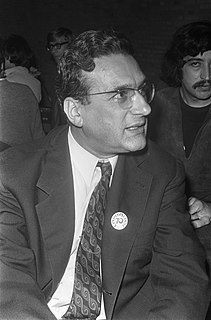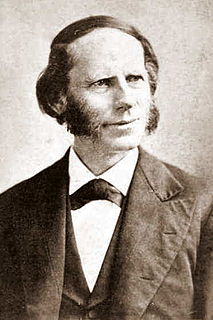A Quote by Maria Montessori
Education is a work of self-organization by which man adapts himself to the conditions of life.
Quote Topics
Related Quotes
The great work of the present for every man, and every organization of men, who would improve social conditions, is the work of education the propagation of ideas. It is only as it aids this that anything else can avail. And in this work every one who can think may aid first by forming clear ideas himself, and then by endeavoring to arouse the thought of those with whom he comes in contact.
Confusion conditions activity, which conditions consciousness, which conditions embodied personality, which conditions sensory experiences, which conditions impact, which conditions mood, which conditions craving, which conditions clinging, which conditions becoming, which conditions birth, which conditions aging and death.
In any bureaucratic organization there will be two kinds of people: those who work to further the actual goals of the organization, and those who work for the organization itself. Examples in education would be teachers who work and sacrifice to teach children, vs. union representative who work to protect any teacher including the most incompetent. The Iron Law states that in all cases, the second type of person will always gain control of the organization, and will always write the rules under which the organization functions.
As long as a man is persuaded that he can make even the smallest contribution to his salvation, he remains self-confident and does not utterly despair of himself, and so is not humbled before God. Such a man plans out for himself a position, an occasion, a work, which shall bring him final salvation, but which will not.
A man only begins to be a man when he ceases to whine and revile, and commences to search for the hidden justice which regulates his life. And he adapts his mind to that regulating factor, he ceases to accuse others as the cause of his condition, and builds himself up in strong and noble thoughts; ceases to kick against circumstances, but begins to use them as aids to his more rapid progress, and as a means of the hidden powers and possibilities within himself.
Education is a matter of the spirit. No wiser word has been said on the subject, and yet we persist in applying education from without. No one knoweth the things of the man except the spirit of man which is in him; therefore, there is no education but self-education, and as soon as a young child begins his education, he does so as a student. Our business is to give him mind stuff. Both quantity and quality are essential.
A human being is not one thing among others; things determine each other, but man is ultimately self-determining. What he becomes - within the limits of endowment and environment- he has made out of himself. In the concentration camps, for example, in this living laboratory and on this testing ground, we watched and witnessed some of our comrades behave like swine while others behaved like saints. Man has both potentialities within himself; which one is actualized depends on decisions but not on conditions.
You are a free man, and let no organization come between you and your best interests. Do not let any man, or any body of men, tell you where you shall work, or where you shall not work, when you shall work, or when, you shall not work. If a man wants to belong to a labor organization, let him belong. If he does not want to belong to a labor organization, let him have perfect liberty to stay out. You own yourself. Let no man put a manacle on your hand, or foot, or head, or heart.
A man's true greatness lies in the consciousness of an honest purpose in life, founded on a just estimate of himself and everything else, on frequent self-examinations, and a steady obedience to the rule which he knows to be right, without troubling himself about what others may think or say, or whether they do or do not that which he thinks and says and does.




































